Star Trek Theory Changes Two Next Generation Fan-Favorite Characters, Reshapes Entire Series
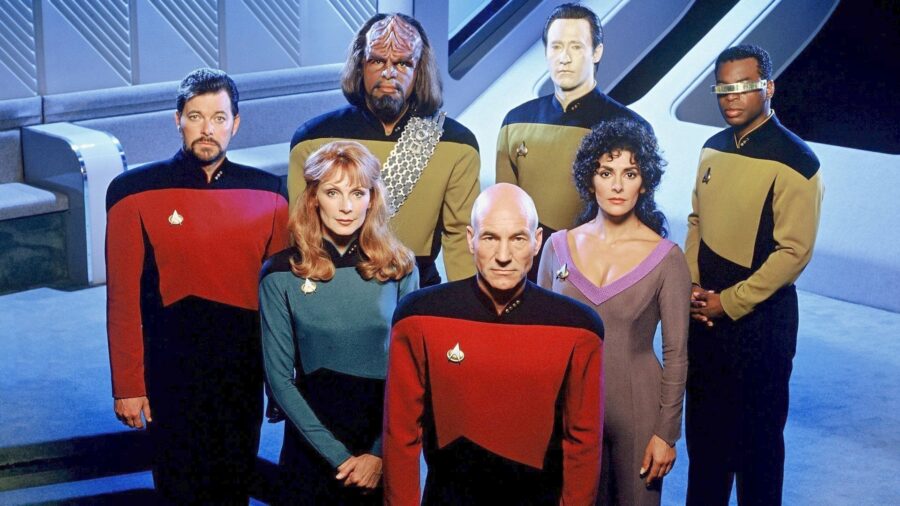
While it doesn’t get a lot of direct attention in many episodes, the most fascinating dynamic on Star Trek: The Next Generation is the one between Counselor Deanna Troi and Captain Picard. One of the funniest fan jokes is that having Troi sit by him on the bridge helps Picard send a message that he is such a dangerously impulsive hothead that he needs a trained counselor by his side at all times. However, a fan theory from Film Studies professor Ira Rae Hark claims the opposite: that Picard is so dispassionate that he needs Troi as a constant link to his more emotional crew members.
A Hero Like Troi Was New To Star Trek
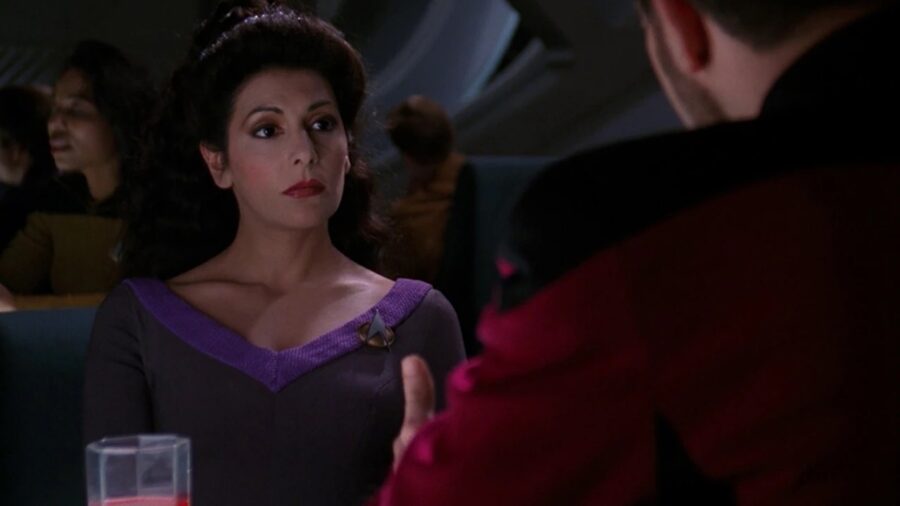
To understand this strange theory, we need to first understand just how novel Deanna Troi’s character was when TNG premiered. Back in The Original Series, the Enterprise didn’t have a counselor, so the closest thing to Troi-like therapy sessions Kirk could ever get was sharing a drink with Dr. McCoy. In giving Picard a counselor and making her such a central part of the new show, the writers and executives helped emphasize that this was a more progressive show that emphasized the importance of mental health.
No One Knew What To Do With Her
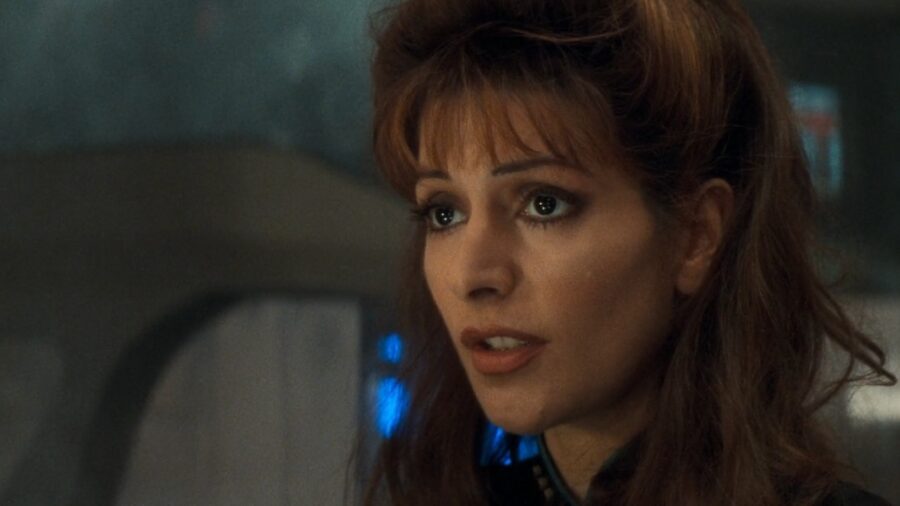
With that being said, the early writers of The Next Generation didn’t know quite what to do with Deanna Troi. On a good day, she was like a special kind of living sensor who could use her half-Betazoid abilities to read the intent of a potential foe Captain Picard was dealing with or serve as a lie detector. On a bad day, however, she had to deal with everything from four-lobed aliens to godlike creatures as the writers frantically tried to write around her pseudo-telepathic abilities.
The Theory

Film Studies professor Ira Rae Hark is no stranger to the franchise. In 2008, she released BFI TV Classics – Star Trek, a reference guide that offered critical readings of everyone’s favorite sci-fi franchise. Honestly, the book is chock full of one cool insight after another, but what really blew me away was what Hark had to say about the interactions between Deanna Troi and Captain Picard.
In Hark’s view, the captain is so emotionally detached that it makes giving orders to his more emotional crew members difficult. This paints an image of a Picard who is very Spock-like: he can recognize various emotions but not always understand them. According to Hark, Deanna Troi “[serves] as a link between Picard’s intellectual and scientific advisers and the more passionate field operatives.”
Picard As Emotionless As Data?
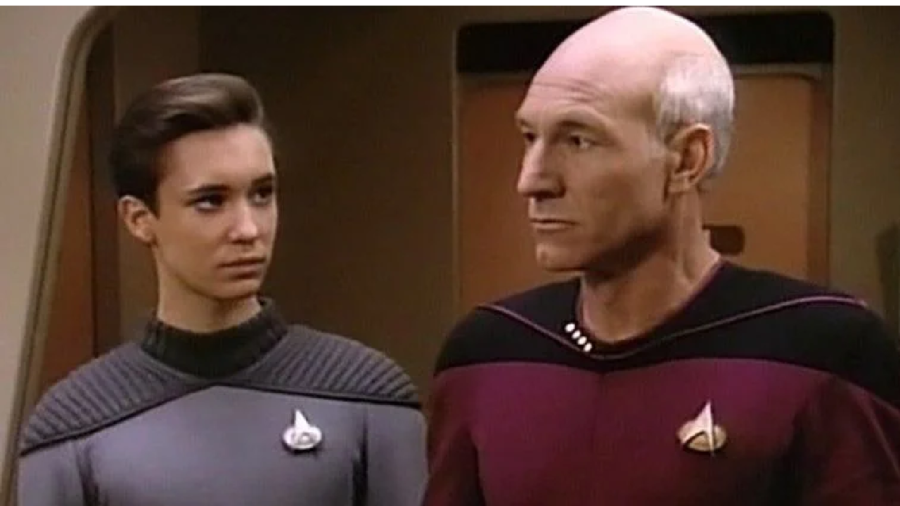
It’s a fascinating theory because it assumes the dispassionate Picard would have an easier time relating to the artificial android Data than he would someone more emotional like Wesley Crusher (maybe this is the real reason Picard hates children). As such, Troi’s position on the bridge allows her to help Picard understand emotional needs that he might otherwise never notice. Hark believes this extends to any new life Picard should run into: the captain would be even more emotionally tone-deaf to aliens than to his own crew, which is why Troi was constantly by his side.
A Valid Theory
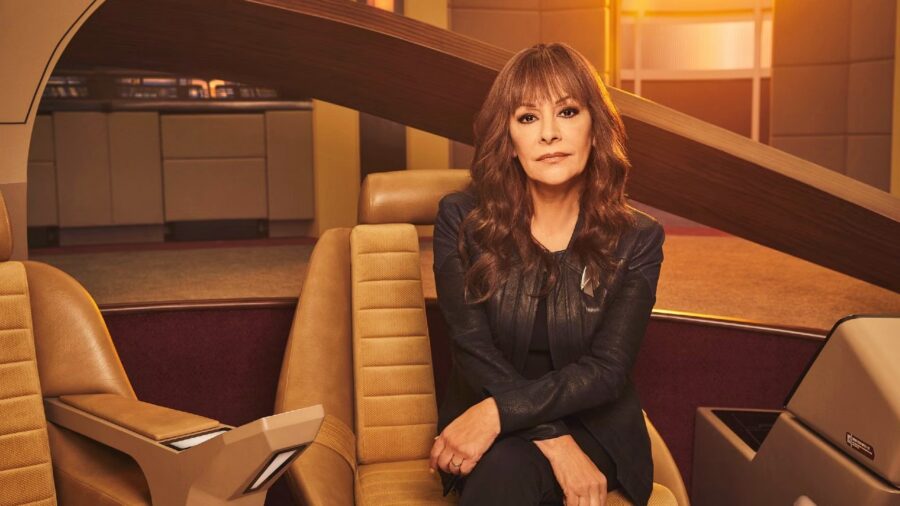
Certainly, some fans will take exception to this Deanna Troi/Captain Picard theory because the dispassionate captain eventually let his hair down (uh, so to speak) and Troi relaxed into a role beyond being Picard’s emotional chauffeur. Still, it’s worth remembering that it took Picard up until the last scene of the last episode to realize how much his crew wanted to play poker with him. With that in mind, the idea that he has someone to constantly explain different emotions and needs at all times seems like a perfectly valid theory.












